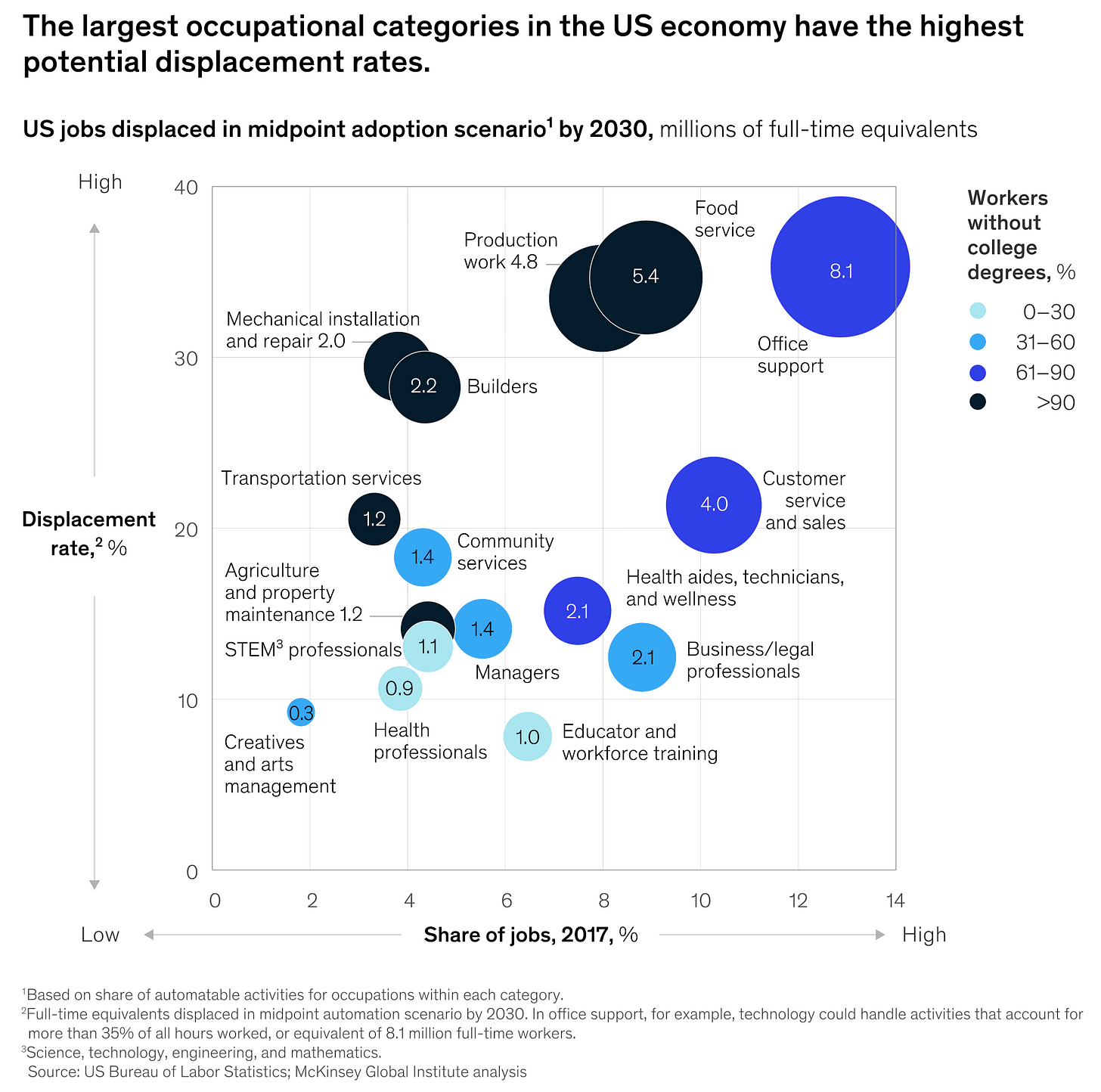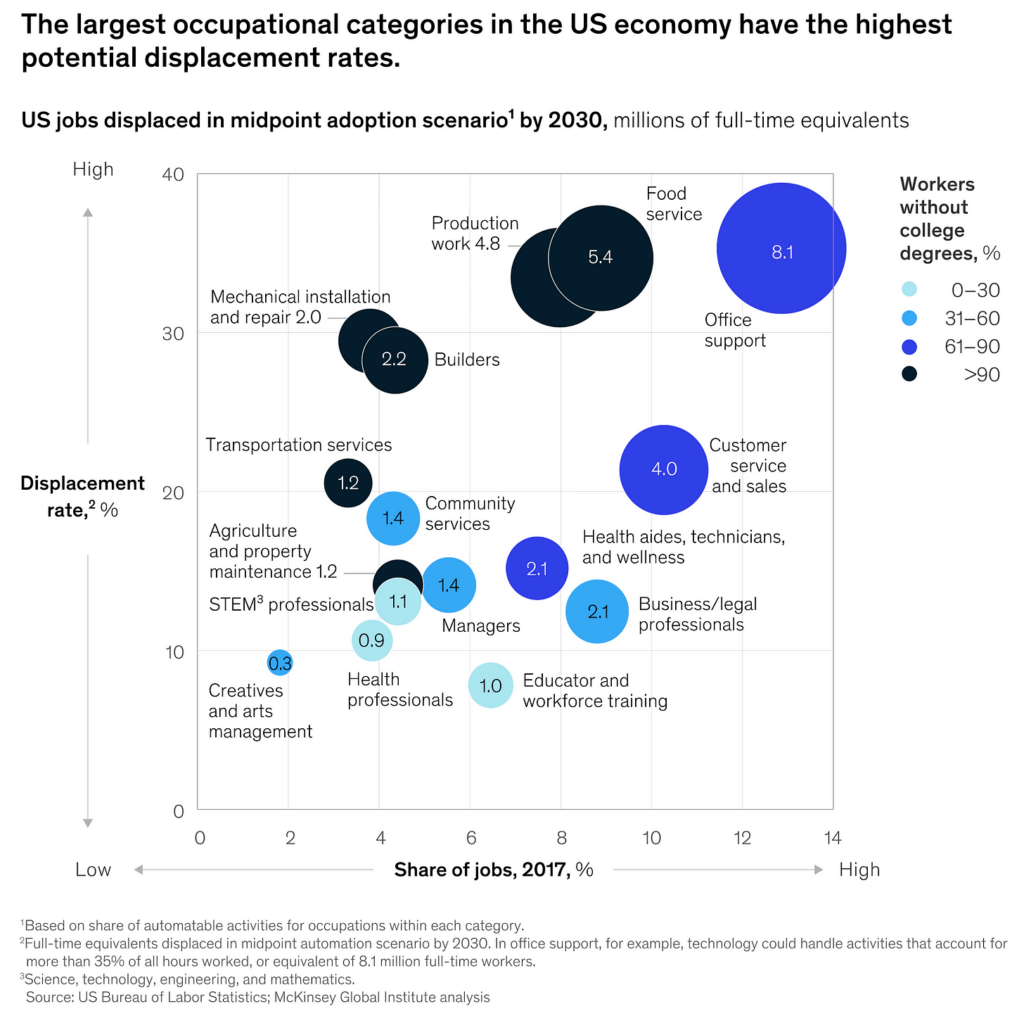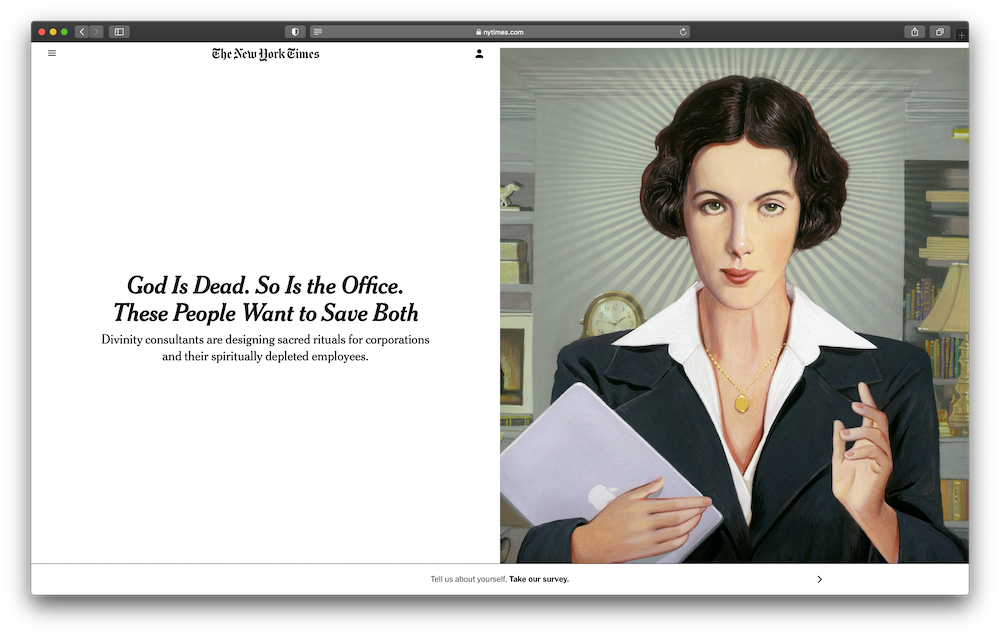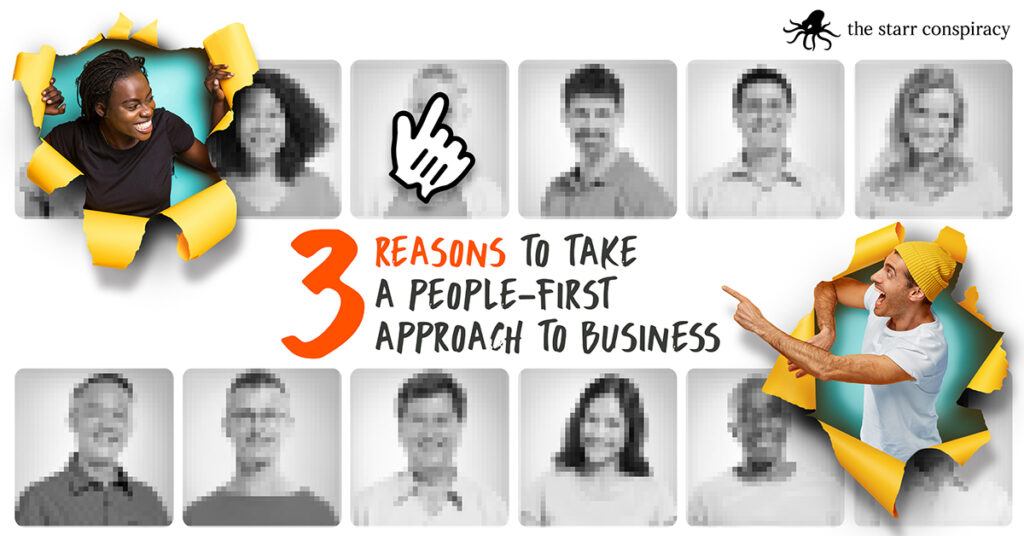Well, contrary to my own estimates, robots are in fact pretty good with language. Unfortunately for me, an artificial intelligence program at JPMorgan Chase has created marketing copy that outperformed human copywriters.
Here’s the context from Quartz.
In another sign that the future of work is already here, JPMorgan Chase has signed a five-year deal with a software startup that uses artificial intelligence to write marketing copy, following a successful pilot with the technology.
In tests, JPMorgan Chase found that Persado’s machine-learning tool crafted better ad copy than its own writers could muster, as measured by the higher click rates—more than double in some case—on digital ads for Chase cards and mortgages. In one such matchup, an ad written by a human read, “Access cash from the equity in your home.” The more successful version, from Persado, read, “It’s true—You can unlock cash from the equity in your home.”
“Persado’s technology is incredibly promising,” Kristin Lemkau, chief marketing officer at JPMorgan Chase, said in a statement. “It rewrote copy and headlines that a marketer, using subjective judgment and their experience, likely wouldn’t have. And they worked.”
I’m not alone in job displacement. Millions and millions of jobs will be lost because of increasingly sophisticated machines doing the work we used to do. Economists at Bain estimate 20–25% of jobs will be displaced by 2030, with U.S. investments in automation increasing to nearly $8 trillion.
To be clear, I’m a firm believer that technology creates as many jobs as it destroys. For example, there weren’t jobs for iOS engineers or data scientists twenty years ago. Further, we shouldn’t be so critical of automation, since we’re not mad that fridges replaced the milk man or cars replaced the carriage driver.
Throughout history societies have had to grapple with how machines replace human work, but it’s important to note two things.
First, machines always win. The laws of economics are against us: We’re expensive, frail, frustrating creatures, and machines simply do a lot of work better than we do. This won’t bode well for many jobs in the future.
Second, some jobs cannot be automated — at least not yet — and we were all made with unique skills to fit within the economy somehow, somewhere.
Who will go first?
In a July 2019 report from the McKinsey Global Institute called “The Future of Work in America,” researchers estimated how many of which type of jobs would be eliminated over the coming decade thanks to automation. It turns out that office work is the most automatable.
But look in the lower left corner. There are some jobs that are simply too, well, human.
Those workers skilled in the arts, education, and healthcare have the lowest likelihood of displacement. These sectors need other humans to do what machines can’t — to care for other humans, and to teach them what it means to be human. You might say that the work of the future will be increasingly more human-centric after we’ve automated the rest.
Charts like these serve as reminders that we all serve a purpose, whether that’s in software engineering, financial management, mothering, or oil and gas. Some are more likely to be automated than others, but we all have to wrestle with our identities in our work and the purpose we serve.
Even if your work can be automated like mine, remember today that your talents and personality are unique, that we all work together as part of a whole community, a whole economy.






